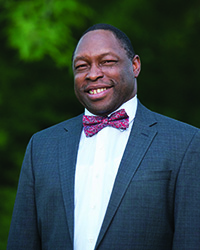Fighting fetal alcohol syndrome disorder
Health Canada lists fetal alcohol syndrome disorder (FASD) as the leading known preventable developmental disability among Canadians, and Adebola Obayan (PhD’04) has devoted his medical career to finding innovative solutions for this significant health issue.
By SEAN CONROY
FASD is a condition caused when an unborn baby is exposed to alcohol during pregnancy, and Obayan has prioritized its diagnosis and treatment since attending medical school in Nigeria in 1987. Now the author of three patents, Obayan’s work in this area reached new heights during his U of S postgraduate research.
One patent, Assay for overall Oxidative Stress, provided the finding that screening for FASD can be improved using a dipstick to measure oxidative stress, which occurs when there is an excess of free radicals (molecules with an odd number of electrons) and a decrease in antioxidant levels in the body.
Using blood samples of patients and healthy controls, Obayan’s dipstick test discovered a significant difference in free-radical levels in sick patients, making the assay a relevant tool for FASD diagnosis and therapy monitoring.
“This method has been used to measure oxidative stress in a study on sick newborns in the Royal University Hospital’s neonatal intensive care unit,” said Obayan, who now works as a general surgeon. “I believe this has potential for bedside and laboratory testing for oxidative stress.”
While there is no medical cure for FASD, Obayan remains optimistic that his research could ultimately help make lives more manageable for those with the condition.
“Early diagnosis and intervention services are crucial for modifying the impact on the affected individuals,” he said.
He also undertook the first animal study model for FASD and the role oxidative stress plays in the disorder. Obayan and Dr. Mansfield Mela, faculty in the College of Medicine, have assessed the effects of alcohol on the brain of euthanized rats and the hope is that the findings will promote early diagnosis of FASD by screening newborns for oxidative stress using the test.
Obayan said his postgraduate study at the U of S is the foundation on which research has served his career.
“I opted for clinically relevant innovations using basic science concepts,” he said. “My PhD work gave me exposure on the gap between clinical and basic sciences.”


